On April 6, 2021, three WSC Board members had a virtual discussion to reflect on what the VAW shelter sector has learned after a year of the COVID-19 pandemic, and what it will be carrying forward. Saadia Muzaffar, Public Director and founder of TechGirls Canada, facilitated a conversation between Board Co-Chairs Jo-Anne Dusel (Executive Director of the Provincial Association of Transition Houses and Services of Saskatchewan – PATHS) and Gaëlle Fedida (Coordinator of L’Alliance des maisons d’hébergement de 2e étape pour femmes et enfants victimes de violence conjugale). This is Part 2 of an edited version of that conversation. See Part 1 here.
Saadia: There have been some concerning indications that domestic violence has increased or become more severe during the pandemic. Notably, there have been 8 femicides in 8 weeks in Quebec this year (note: since filming, ten women have been killed in Quebec in 2021), and BC has also seen 7 femicides in 2021. What can the sector do to respond to this?
Gaëlle: You may have seen that there was a big mobilization about this in Quebec. This is what we do. There is an absolute need of campaigning, but we also need to continue the advocacy for a National Action Plan. Domestic violence issues are not only about shelters – the women who were killed were not in shelters, but the guys were all known to police. The big change has to happen in the judicial system. All governments need to understand that this is an issue that cannot only be solved by shelters.
Jo-Anne: In order to address the ongoing and escalating rates of violence against women, including intimate partner violence, we need to recognize the scope of the issue. For far too long, when intimate partner homicides took place, they were three lines on page 5 of the newspaper. The public awareness that has come over the past year of the level of violence against women has been helpful. The impact of the Nova Scotia killings was so horrific that it was a bit of a wake-up call for people to realize that this kind of violence is rooted in misogyny and patriarchy. The only way to shift that is a real culture shift. This is an all of society problem and it will take all of society to address it.
Click here for a short video of an extended part of this discussion
Saadia: Many organizations and advocates have been calling for a just recovery from COVID-19, instead of going back to normal. We know that “normal” wasn’t working for women, especially women from marginalized communities and those experiencing violence. What does a just recovery look like for the shelter sector and for survivors?
Jo-Anne: We need to recognize that women have been disproportionately impacted by the pandemic in numerous ways – more women than men have lost their jobs, many have now become responsible for childcare and homeschooling while working from home, this on top of the fact they have traditionally worked in lower-paying jobs that are now considered essential. So we need to look at the ways in which women’s economic inequality has played into the more serious impacts for women generally. And that will help anyone who is vulnerable to violence, including the women who we serve in our shelters.
Gaëlle: The way to go forward is to really ensure that gender-based analysis is part of all public laws and budgets. This is exactly what we didn’t have recently in Quebec. This is the only way forward – it is the only thing that will change structurally all the laws and mechanics that we are in today. Unfortunately, we don’t see this happening in our province.
Saadia: Both of you referred to the interconnectedness of a lot of social issues that impact women’s safety. Can you speak to specific parts of the National Action Plan (NAP) for those who don’t know what it’s advocating for an how it’s looking at the whole picture?
Jo-Anne: Women’s Shelters Canada has been funded by the department of Women and Gender Equality (WAGE) to gather together experts from across the country to establish a framework of recommendations for the development of the NAP. This work has been separated into four pillars: prevention; support for survivors and their families; promotion of responsive legal and justice systems; and social infrastructure and enabling environment, including housing and childcare. This NAP will be developed alongside a NAP specifically for Firest Nations, Métis, and Inuit women. This is the big picture view we need to boil it down to a Plan that will have the real and lasting impact we’re looking for.
Saadia: What can governments and members of the public do to support a just recovery that doesn’t leave out survivors?
Gaëlle: The way forward for governments to re-launch the economy with women post-COVID is to provide, at all levels, a gender-based analysis of all budgets and public policies that are issued. This is the only structural way that we will manage to change the paradigm.
Jo-Anne: Another way to have a just recovery and ensure survivors are not left out is to include them in discussions. And listen. And implement. Act on what they tell you. Advocates such as shelter workers, the provincial and territorial associations, and Women’s Shelters Canada can bring those voices forward as well, but if you really want a just recovery that won’t leave survivors behind, you need to talk to survivors and you need to provide the things they tell you they need.
Saadia: What can members of the public do, who may be reading this, other than supporting the call for a National Action Plan?
Gaëlle: On a very immediate basis, we need the public to be awake. This is a society problem; people don’t think it’s their problem. They think it’s a family problem and a private problem. We urge people to give support to their sister, daughter, mother, aunt, cousin, friend, neighbour. Domestic violence is very rarely completely hidden. Everyone in society should be able to discuss this with their friends, their aunt, their uncle – anyone who might need to hear it.
Jo-Anne: I agree – the general public needs to involve themselves in this issue. Violence against women is not a private problem. It is everybody’s business and we all have a role in addressing it. So, challenging those attitudes that normalize violence, particularly in relationships, and even language that tends to diminish women or see women and other marginalized genders as “less than.” The general public can support organizations that are doing this work, like their local shelters and counselling services. They can advocate with their elected officials and say, “This issue is important to me. We need proactive legislation and policies. We need to support survivors with dollars so that they can start new lives free from violence.”
If you or someone you know is experiencing violence in the home, there are supports you can reach out to day or night. Sheltersafe.ca is an online, clickable map that connects you with your local women’s shelter and its 24/7 crisis line. You do not need to move into a shelter to receive services such as counselling and safety planning. Friends, family, and neighbours are encouraged to phone a shelter for advice if they suspect someone they know is experiencing violence.


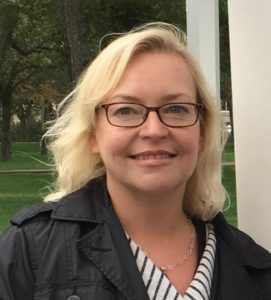

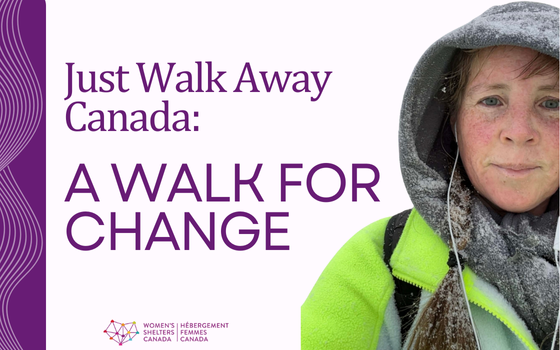
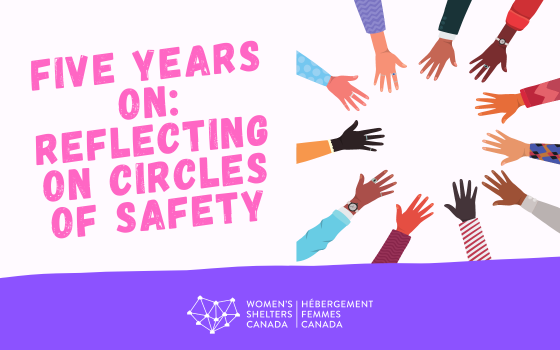
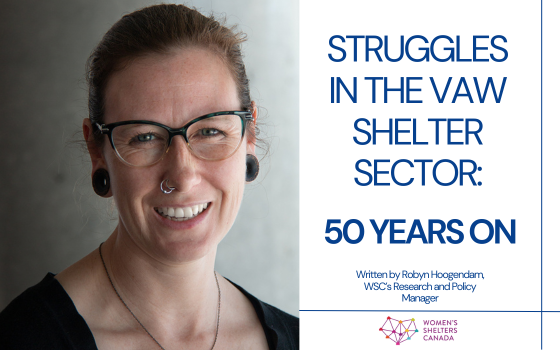
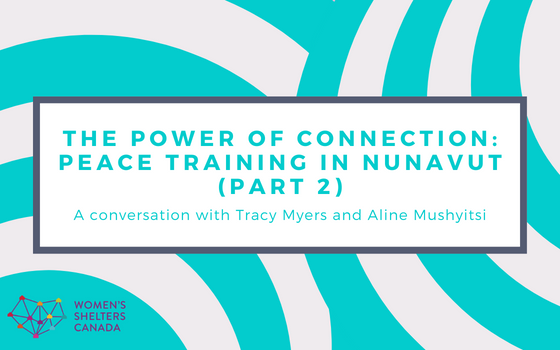
[…] violence conjugale). This is Part 1 of an edited version of that conversation. Part 2 of this blog, Where Do We Go from Here? will be released on […]